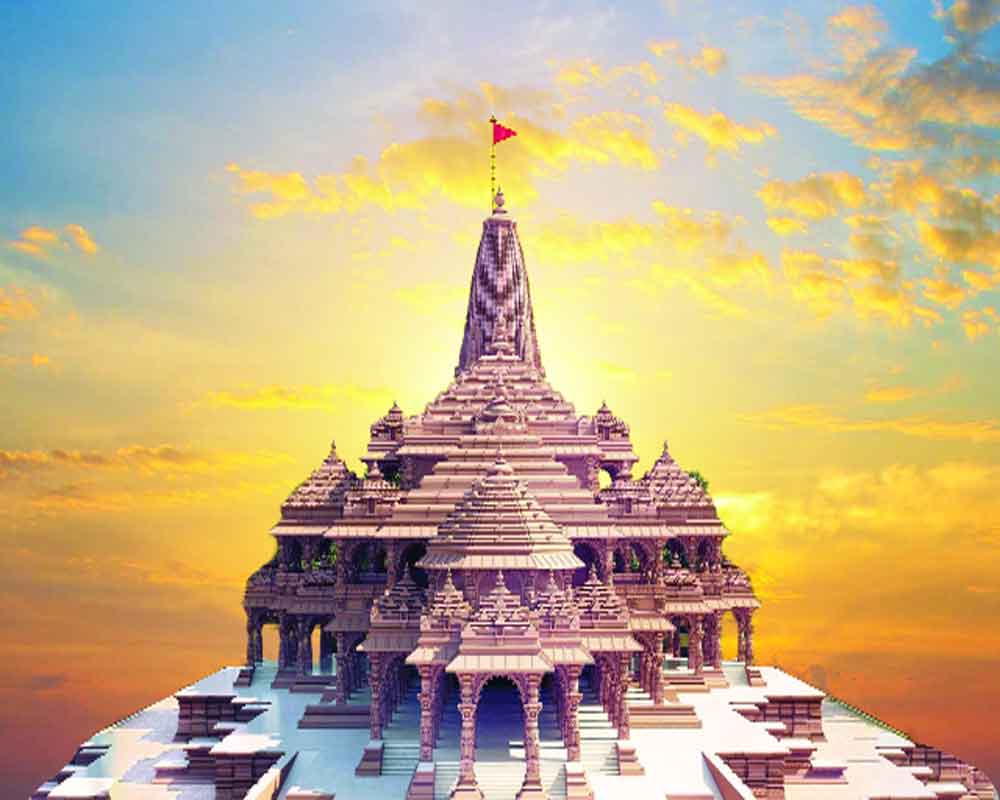Today marks the historic emergence of a modern Hindu Rajya as India stands more confident and poised for progress than ever before, embracing its cultural heritage
As the sun rises on Monday, January 22, 2024, India becomes a modern Hindu rajya. The north of Bharat slipped out of Hindu rule; the cause ironically, was the Hindu ideal; kshama veerasya bhushanam (forgiveness is the ornament of the brave). In 1191 at Tarain in present-day Haryana, Prithviraj Chauhan of Delhi routed the Turkic invader Mohammad Shabuddin Ghori but soon afterwards, obtaining an apology from the vanquished enemy, pardoned him, and allowed him to return to his native Afghanistan. Ghori did so, only to return to the following year to the same battlefield. Chance had it that this time around, it was Prithviraj who lost and was taken prisoner. The cowardly victor had his prisoner blinded and killed. Thus ended Hindu rule in Delhi.
Qutbuddin Aibak’s Sultanate was established and the Hindus could not get back to the throne of Delhi. Hindu diyas (earthen lamps) fortunately continued to flicker in many parts south of the Vindhyas as well as Assam. The rest of India more or less trudged along under the heels of Islamic rulers. To this day, both Pakistan as well as Bangladesh continue to brandish their official Islamic constitutions.
For the sake of the show, India became a ‘secular’ country and proclaimed its commitment to the ideal of Vasudhaiva Kutumbakam (the entire world is a family). Jawaharlal Nehru, the patron father of the Nehru dynasty, called himself —rather proudly — a “Muslim by culture, Englishman by upbringing and a Hindu only by accident (of birth).” The Nehru dynasty still hopes to return to power, but there are other aspirants for the throne. The people of India though, prefer a true Hindu ruler. They have every right to aspire for Hindu rule in a Hindu Rajya and not a nondescript mixture of non-Hindu rulers under whatever label.
To ensure the fructification of this desire, a change in the Constitution is necessary. In any case, an overall amendment is long overdue. The current one had to be put together in somewhat of a hurry on the morrow of independence. The ready model before the country’s legal luminaries was the Government of India Act 1935, passed by Britain’s parliament to govern its biggest colony better. It certainly had not been written with the intent of developing or governing a new country that had been divided on religious lines only yesterday.
The divided smaller part went to the extent of assigning its sovereignty to Allah the merciful, and no one on earth. The 1935 Act, if at all, would assign sovereignty to the British Crown. It introduced clauses such as Articles 25 to 30, which even today appear to have been written to induce the Muslim League not to insist on the partition of the country. That it was written in a hurry shows up in the fact that it has had to be amended a hundred and forty times.
Some foundational Hindu aspirations have found a place in the Directive Principles of State Policy, but aren’t enforceable fundamental rights, like a ban on cow slaughter, the implementation of a uniform civil code and others. Equality is being over-emphasised. When the constitution permits a man to have up to four wives, but not a woman to have more than one husband, the principle goes begging.
Every Constitution has provisions for amendments. If any change is so great as to need a rewriting of the entire document, it can and should be done. Germany and France are now in their fifth polity; why cannot India therefore, enter its second rajya?
In the Indian situation, the need for revision of the entire document and not merely amendment of Articles, as compared to Western constitutions certainly does exist. For example, the Christian ethos can demand equality, because of its belief that God made man equal, whereas in the Hindu work view, the jivatma (individual being) is a meteor that has come down and will, one day return to the Paramatma. Fate will depend on one’s karma, and the karmas of no two individuals will be identical.
Constitutions are institutions innovated by the Christian world; other cultures have only adapted themselves to it. In Europe, the Church owned much land and wielded considerable power. France’s constitution allotted one house of the National Assembly to abbots and bishops, enabling the clergy to wield considerable power within the state. A stage therefore came when the State and Church had to be separated. This was the justification for secularism.
Prophet Moses’ Ten Commandments prohibit the worship of idols, or any attempt by a worshipper to have a glimpse of the divine. In the Hindu ethos, there is no greater joy for a devotee than to have a glimpse of the divine. There is no place for secularism in the Hindu ethos. In any case, secularism as practiced in India has come to mean preferentialism.
Money from Hindu temples flows to the government, which does not touch churches or mosques in the country. On the contrary, governments in some states go out of their way to pay the salaries of the clergy of Allah. Whether we call our second constitution the “Second Republic” or not, we certainly need a revision of our constitutional structure, to provide the scope for our people to realize their genius to the fullest.
(The writer is a well-known columnist, an author and a former member of the Rajya Sabha. The views expressed are personal)


























